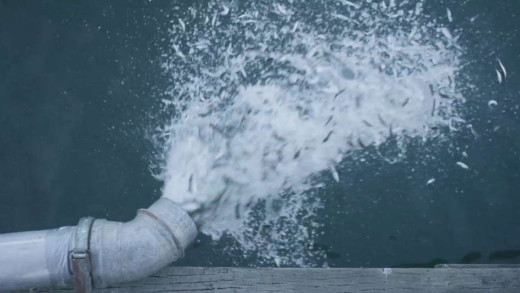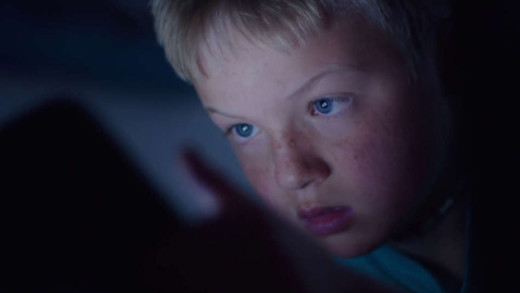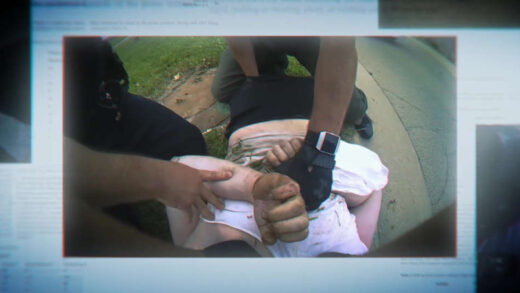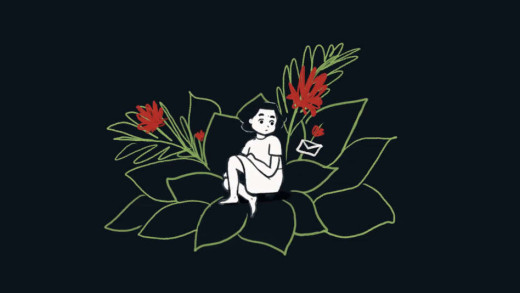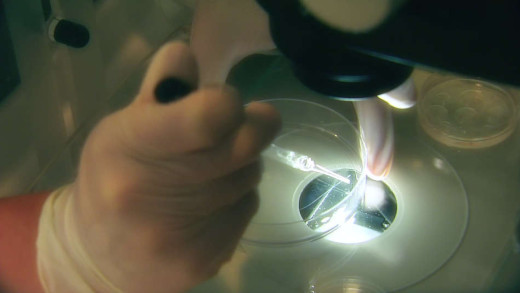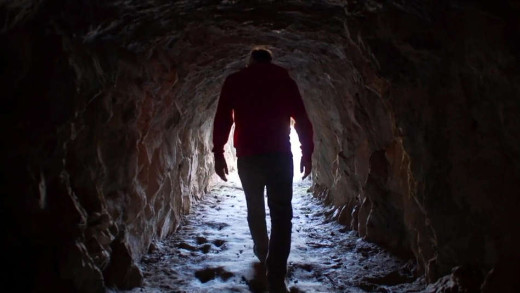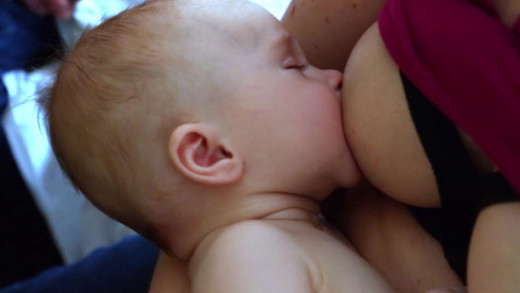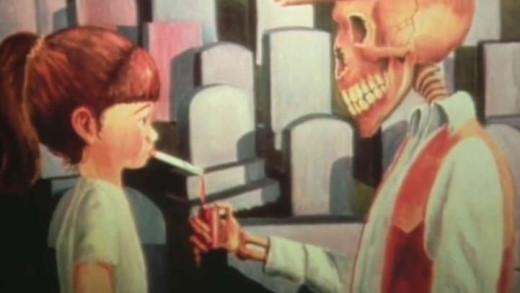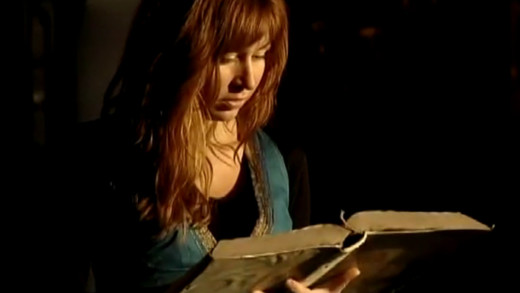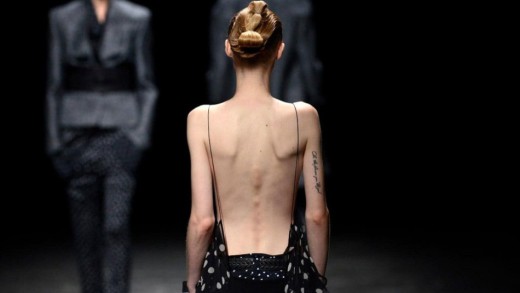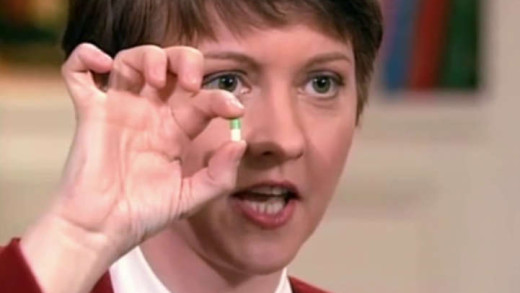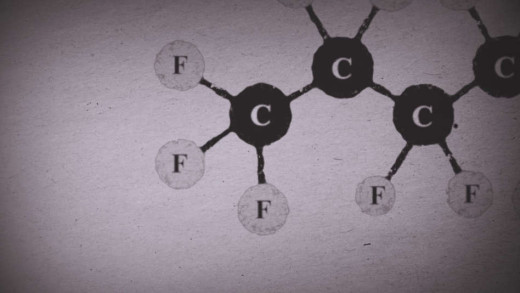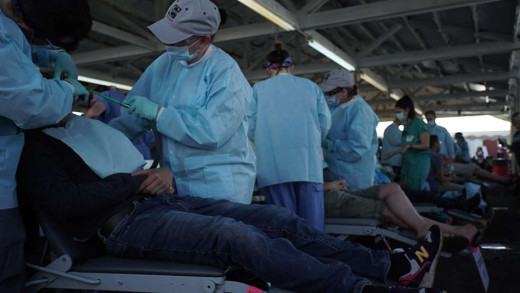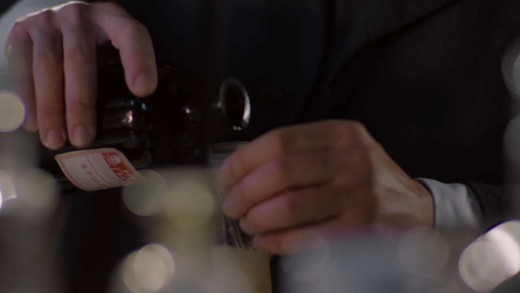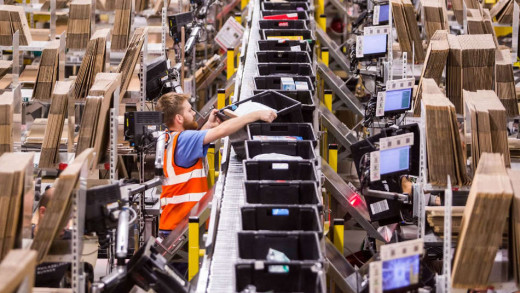Artifishal is a film about people, rivers, and the fight for the future of wild fish and the environment that supports them. It explores wild salmon’s slide toward extinction, threats posed by fish hatcheries and fish farms, and this culture's relentless pursuit of engineering, mechanisation, and commodification in the face of environmental collapse. The film shows how fish hatcheries and fish farms threaten wild salmon populations, which in-turn has wide effects on the rest of the environment, but instead of helping wild salmon recover, this culture powers on with hatcheries and farms at great cost, both economically and ecologically. Artifishal explores the process, and what's at stake if this culture continues its destructive path.
Mental illness and suicide have become the greatest threats to school-aged children. Many parents still view dangers to children and teens as primarily physical and external, but they're missing the real danger: young people spending more time online and less time engaging in real life, free play, and autonomy. While older generations might have learned the value of being outside, household chores, and in-person playtime with friends, the youth of today have fallen prey to smartphones and video games. Childhood 2.0 is an exploration of this dramatic technological and cultural shift, where children and parents face the rise of social networks, mobile devices, and the screen culture, along with addiction, withdrawal, anxiety, depression, online abuse, bullying, the pervasiveness of pornography, sexting, the rise of online pedophilia and sexual predators, the loss of playtime, imagination and autonomy, and the rapid growth of suicide among children and teens. In addition to mental health professionals, the filmmakers speak with a series of concerned parents who have witnessed a profound transformation in their children, especially when placed in contrast to their own beginnings. Then there are the children themselves who speak to the overpowering allure of their devices, the pressures these devices place on them in their daily lives, and the challenge they face when they try to turn away from the screen.
Documenting Police Use of Force investigates deaths that occurred after police used tactics like 'prone restraint' (which is a method of restraining a person by placing them face down on the ground which can pose serious risks including difficulty breathing and psychological trauma), forced-sedation, and the use of weapons such as tasers, batons, and other physical violence such as punching, kicking, and pressure-holds. The film also investigates other so-called "less-lethal force" methods used on citizens during police encounters and arrests. The documentary and accompanying reporting draw on police records, autopsy reports and police body-camera footage, offering the most expansive tally of deaths in the United States.
Misogyny is rampant in this culture, and corporations capitalise on making women hate their bodies. Indeed all aspects of womanhood are commodified, hypersexualised, and squeezed into gender stereotypes. Being female comes at a cost. So it's no wonder that young people growing up can feel horrible about themselves and their bodies, and further feel confused about what it means to be a woman in today's world. Into this perfect storm steps queer theory, an ideology born in the 1990s, that tells people that all the confusing feelings they may experience about the world they live in can be fixed not by changing the world, but by changing themselves. The past decade has seen a steep rise in the number of young girls seeking to alter their bodies by undergoing life threatening, irreversible procedures. Dysphoric is a series that explores this concept of gender transition, told through the voices of clinicians, psychiatrists, sociologists, feminists, academics, detransitioners, and concerned citizens and parents. The series also discusses the permanent medical side-effects of hormones and surgeries, the propaganda of corporations that glorify thousands of stereotypical gender presentations coalesced as fashion, the surge in pronoun policing, censorship and the curtailment of speech, language hijacking that calls women "menstruators," and the many other hurdles women face while trying to question this modern-day misogyny.
The infertility industry in the United States has grown to a multi-billion dollar business, and its main commodity is human eggs. Young women all over the world are bombarded by advertising--on college campus bulletin boards, social media, online classifieds--offering up to $100,000 for their donated eggs, to "help make someone's dream come true." But who is this egg donor? Is she treated justly? What are the implications to her health? Eggsploitation spotlights the booming business of human-egg extraction told through the stories of women who became involved and whose lives have changed forever after undergoing the procedure. Their accounts provide a cautionary tale to all women who are considering egg donation for the purpose of in-vitro fertilisation or embryonic stem cell research.
In the race towards modernity, amongst the buzz and jitter of technological innovation and the rapid growth of cities, silence is now quickly passing into legend. Beginning with an ode to John Cage's seminal silent composition 4' 33", the sights and sounds of this film delicately interweave with silence to create a contemplative experience that works its way through frantic minds and into the quiet spaces of hearts. As much a work of devotion as it is documentary, In Pursuit of Silence is a meditative exploration of our relationship with silence, sound, and the impact of noise on our lives.
Milk
Traversing the judgement placed on women who bottle-feed their babies, to the stigma surrounding mothers who breast-feed their toddlers, and the stigma of breast-feeding in public, the polarised topic surrounding breast-feeding sets off an emotional and personal debate in a highly eroticised culture, where it is hard for some to remember that breasts have a purpose that is not selling cars, beer, and sex. Milk investigates the overarching themes surrounding the commercialisation of infant feeding and its effects on child mortality, as well as the challenges it presents to adequate health worker training and the judgement placed on women regardless of how they choose to feed their babies. Milk also shows the natural world juxtaposed to the industrialised way in which we receive a new life into this world. Milk follows stories of mothers from different cultures spanning 11 countries, as it reveals the universal issues and challenges facing motherhood and birth today.
Through powerful insider information, Pack of Lies reveals the deception of the tobacco industry's claims that they do not seek to addict children to nicotine. The film provides important analytical background. Jean Kilbourne is a nationally recognized researcher and lecturer on media, advertising, and health issues. Rick Pollay teaches advertising and marketing management at the University of British Columbia, and has been an expert witness in trials involving the tobacco industry. They team up to provide important insights on the power of advertising dollars to counter the influence of scientific research, to affect news coverage, and to put private profit ahead of public health.
Red Moon
With humour and refreshing candour, Red Moon provides a fascinating, often ironic, take on the absurd and frequently dangerous cultural stigmas and superstitions surrounding women's menstruation. As educational as it is liberating, the film functions as both a myth-busting overview of the realities of menstruation, and a piercing cultural analysis of the ways in which struggles over meaning and power have played out through history on the terrain of women's bodies.
Slim Hopes
Slim Hopes shows how the stories advertising tells us about food, femininity, and the female body directly contribute to anorexia, bulimia, and other life-threatening eating disorders. From ads that glamorise emotional eating with catch-phrases like "you can never have too much," to ads that promote thinness and tell women to watch what they eat, Slim Hopes takes the advertising industry to task for sending young women in particular, a set of deeply contradictory and unhealthy messages about food and body image.
Sustenance
A group of friends become curious about the sustainability of their eating regiments. They instigate a challenge, and send filmmaker Yasi Gerami off on a quest to investigate the sustainability of their eating ideologies. The friends come from different backgrounds and live in Toronto, Canada, but the inquiry takes the story of their food around the globe. As Gerami digs deeper, she realises the inconvenient truths not only about the environmental catastrophes caused by our dependence on mainstream food production methods, but also by the cataclysmic social justice impact of our eating habits in the global south. The film unfolds some popular myths on topics such as plant-based diets, healthy and nutritional foods, ethical eating, food politics, industrial agriculture, and how to attain a sustainable food culture. Sustenance helps the viewer discover these themes, prompting the viewer to question where our food really comes from, and how it genuinely affects the health of other people, other species, and ultimately the entire planet.
When modern antidepressants like Prozac were launched in the late 1980s, they were quickly heralded as wonder drugs for treating anxiety and depression with few side effects. While many say they have benefited from taking the drugs, there is an increasing body of evidence that reveal physical and mental side effects of the drugs that are wide-ranging and are often downplayed. From headaches and brain fog, to loss of sexual function and suicidal thoughts. The Antidepressant Story speaks to patients grappling with side effects such as these and asks if this multi-billion dollar pharmaceutical industry is really helping.
The Devil We Know investigates the toxicity of perfluorooctanoic acid--PFOA/PFA, also known as C8--the key ingredient found in non-stick cookware, stain resistant furniture and carpets, wrinkle free and water repellent clothing, cosmetics, lubricants, paint, pizza boxes, popcorn bags, and many other everyday products. The film centres on Parkersburg, West Virginia, in the United States, at the DuPont facility that manufactured Teflon, and dumped at least 1.7 million pounds of PFOA into rivers and streams between 1951 and 2003, knowing that it was a carcinogen. The film follows the personal stories of several people who worked at the facility that experienced cancers and birth defects, and also reveals the detection of PFOA in the blood of more than 98% of the general US population in the low and sub-parts per billion (ppb) range, with levels much higher in chemical plant employees and surrounding subpopulations.
Britain's National Health Service, the NHS, was the world's first universal public health service, created out of the ideal that healthcare should be available to everyone, regardless of wealth. Designed to give millions of people "freedom from fear" following the Second World War, the NHS today is under threat of being sold-off and converted to a free-market model, inspired by the private health insurance system in the United States, which results in the deaths of an estimated 45,000 people every year. President Trump says the NHS is "on the table" in any future trade deal with America. Filmed in Britain and the United States, this timely documentary reveals what may be the last battle to preserve the most fundamental human right: health. Veteran filmmaker John Pilger takes us through a history of threats to Britain's National Health Service, from its founding in 1948, through a push for privatisation during the 1980s, to challenges by the new politics of today and the drive for corporate take-over.
By the close of the Industrial Revolution, the food supply in the United States was tainted with frauds, fakes, and legions of new and untested chemicals, dangerously threatening the health of the public. The Poison Squad, based on the book by the same name from author Deborah Blum, tells the story of Dr. Harvey Wiley, a government chemist who was determined to banish these dangerous substances from dinner tables, and so took on powerful food manufacturers and their allies. Wiley embarked upon a series of bold and controversial trials on 12 human subjects who would become known as the “Poison Squad.” Following Wiley’s unusual experiments and tireless advocacy, the film charts the path of the forgotten heroes who together laid the groundwork for consumer protection laws in the United States, and ultimately, paved the way for the creation of the Food and Drug Administration.
A behind the scenes look into what happens when you buy from the world’s biggest online retailer: Amazon. Through testimonials of ex-employees and an undercover employee with a camera, the tough conditions for workers are revealed. The film exposes the immense pressure the workers go through, such as racing a computerised clock every step of their shift, and having to walk up to 11 miles a day inside the distribution centres. As more people around the world turn to online shopping with a click of a button, staff members working at Amazon are put under mental and physical stress to deliver out of sight, out of mind.
Vietnam: The Secret Agent is an investigation of the history, effects, and implications of the deadly compound "2,4,5-T," a main ingredient of the chemical weapon code-named Agent Orange, which the United States sprayed throughout Vietnam during 1961 to 1971. Its toxicological effects are still seen today, generations later: cancers, birth defects, physical deformities, deaths, contaminated soil in which dioxins bio-accumulate and concentrate in the food cycle. The chemical started as a herbicide in agriculture from the 1940s to 1970s, but was the first to be used in war, to similar effect. The film focuses on the exposure of these toxins to both citizens and soldiers alike, exposed through the lens of archival and battle-field footage, in support of interviews with veterans, scientists, attorneys and representatives of Dow Chemical--the company that made the chemical weapons--and the United States government, that used them against the world.
